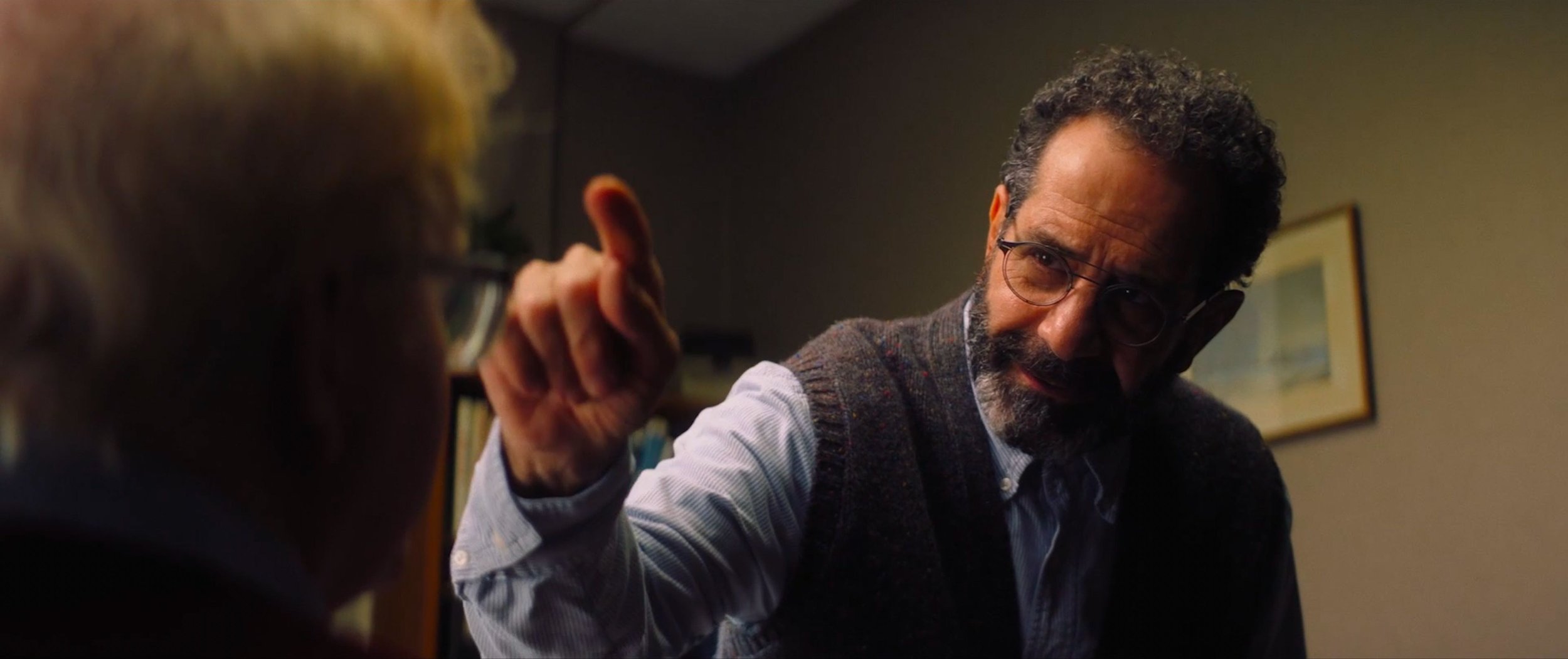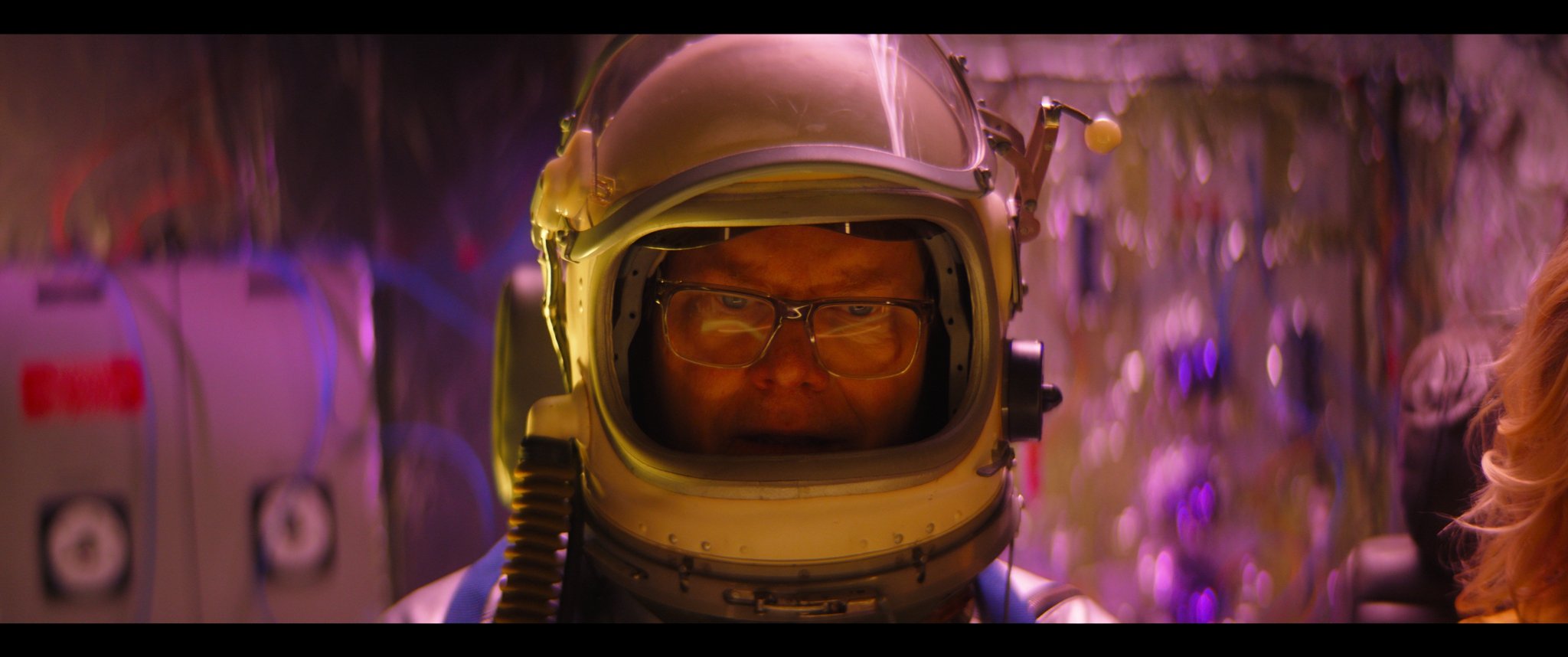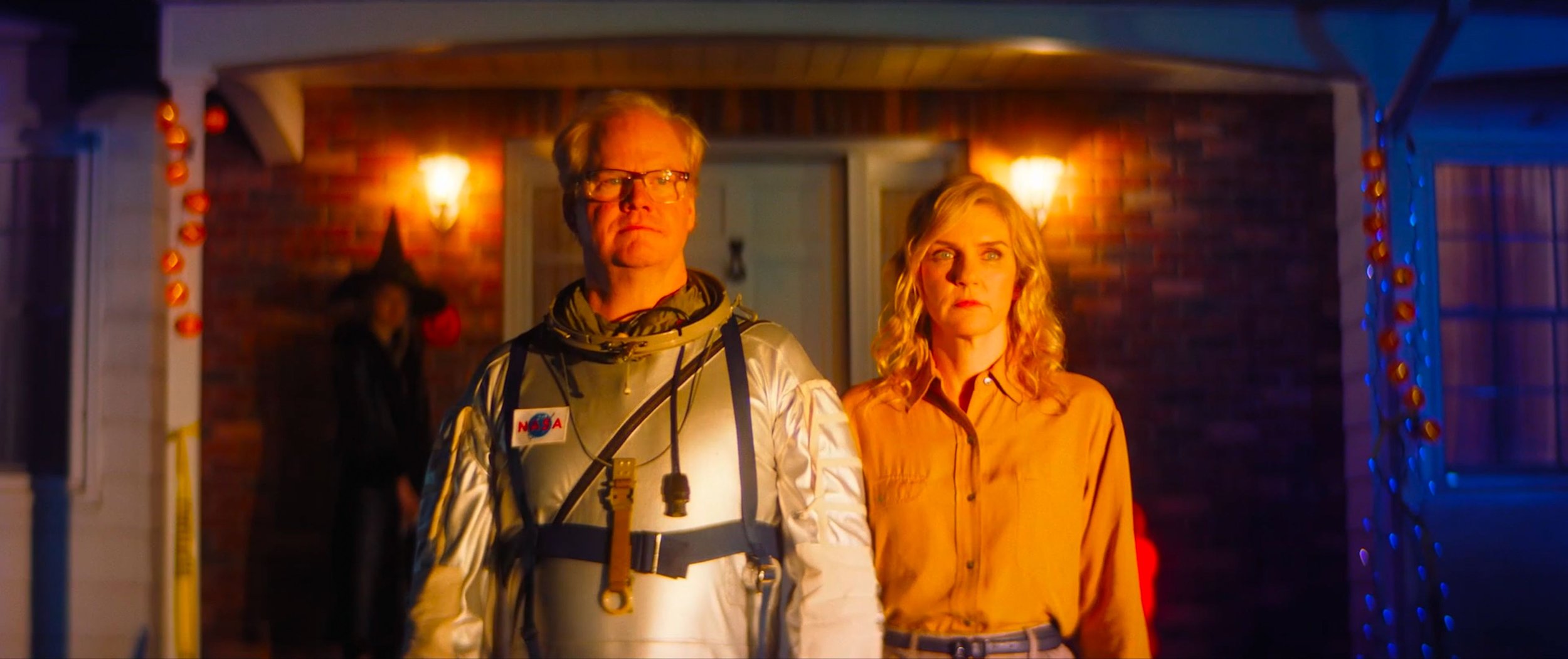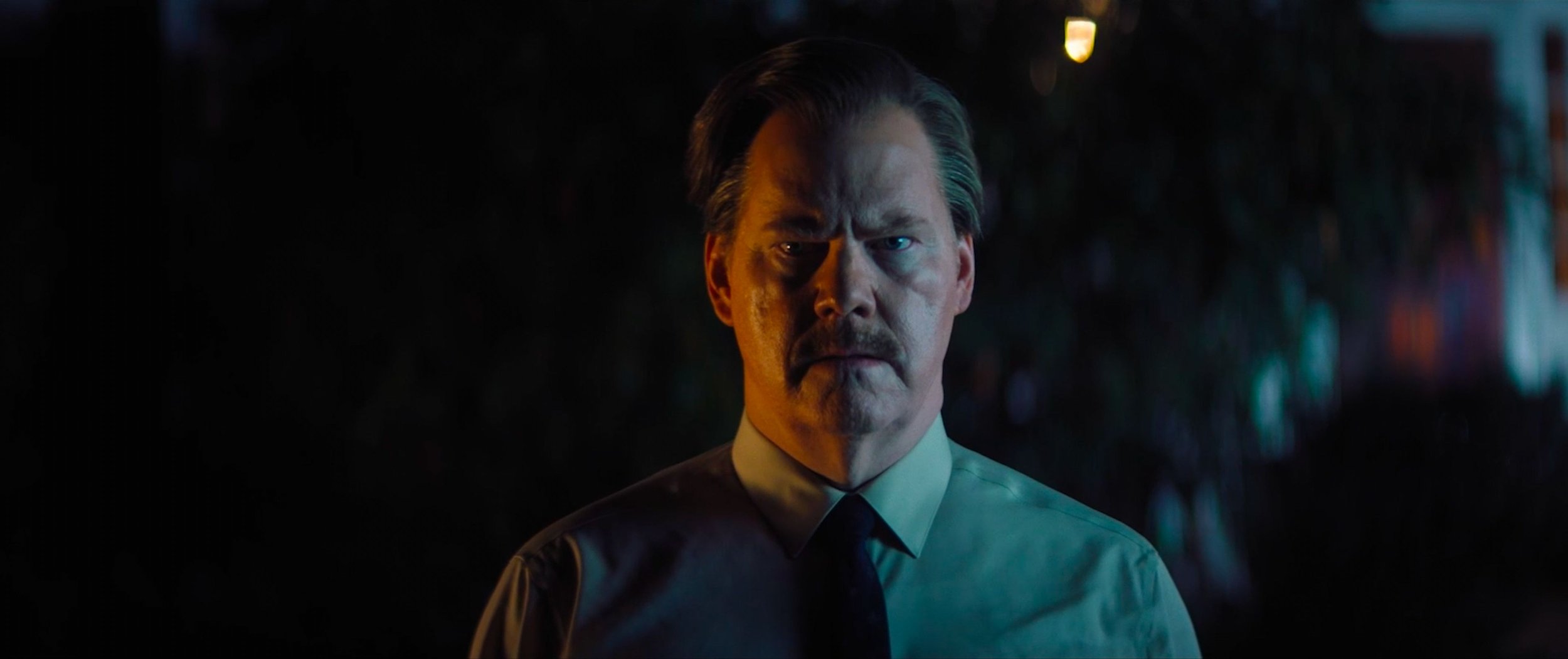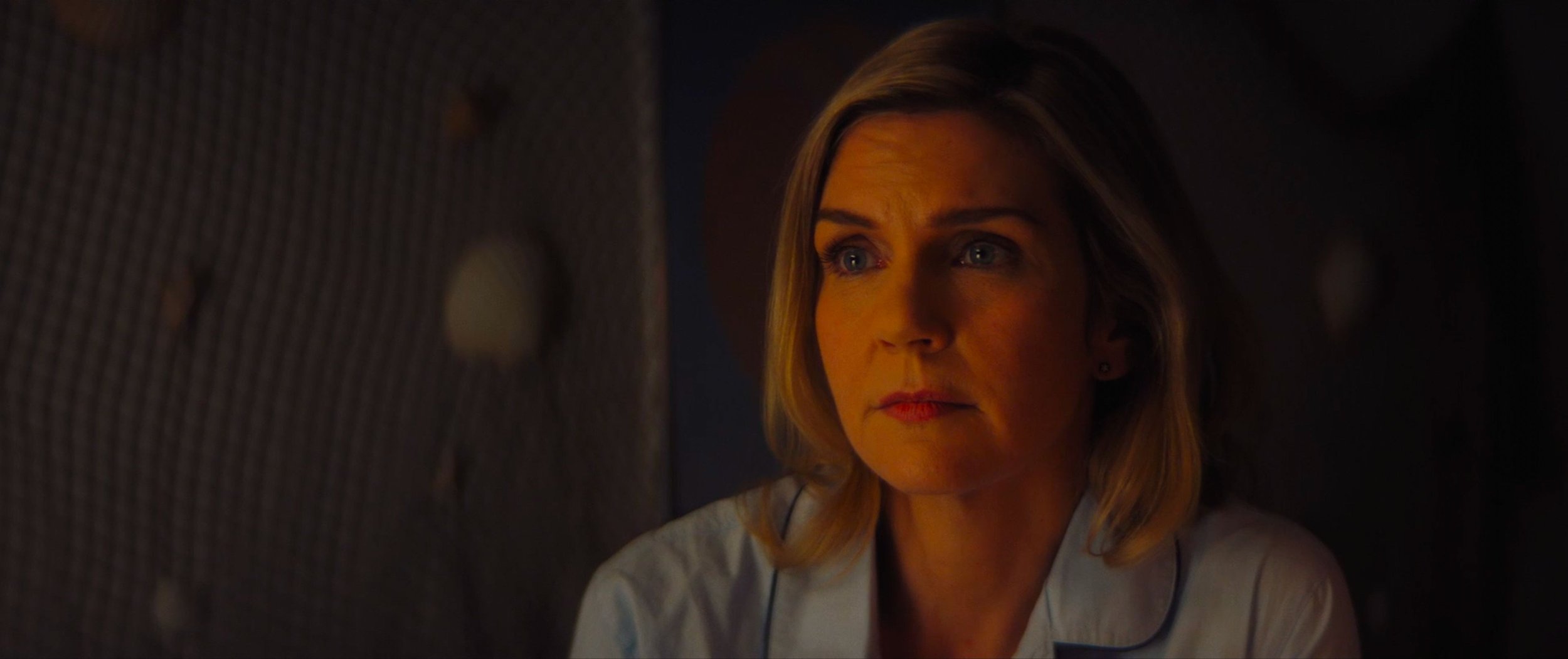MOVIE REVIEW: Linoleum
LINOLEUM– 4 STARS
About halfway through Linoleum, Jim Gaffigan’s main character, a television science show host named Cameron Edwin, takes stock of his life approaching 50-years-old. He verbally shares, “This is not how I thought things would turn out. I wanted to do something fantastic.” His wife Erin, played by Better Call Saul’s Rhea Seehorn, answers, “Fantastic is not that simple,” and lays out her own perspective on their current standing. That adjective is a perfect choice to describe the wide expanse between Linoleum’s capricious microcosm and emotional macrocosm.
LESSON #1: THE RANGE OF EFFECT AND DESCRIPTION FOR “FANTASTIC”-- In most interpretations of “fantastic,” the illustration is of something seen as excellent or very good. The other direction goes towards the vast or enormous. To boot, a character of any sort seeking the fantastic is typically either overreaching or overselling. For a good while, as the word keeps coming up in desirous dialogue written by filmmaker Colin West, Linoleum equates fantastic with irrational. The movie coyly and therapeutically hinges on the bated breath of witnessing grander wish fulfillment that dares to go against logic.
LESSON #2: IDENTIFYING YOUR UNIQUE PERSPECTIVE– Linoleum sets that attitude brilliantly with its opening voiceover introducing Cameron. The astronomer is describing how the evolving and growing universe can appear out of the black abyss when people look closely. Paraphrasing, Cameron’s monologue discerns further that “what you’re seeing is entirely unique to you” and one’s personal universe. He calls that point-of-view a kind of “fingerprint” of the individual. Matching the spirit of the astronomer who never stopped wanting to be a full-fledged astronaut, that cosmic homily is unmistakably tenderhearted. However, that notion may also define a cloud of malaise and confusion between Cameron and reality.
As chipper as Cameron tries to be, the proverbial orbiting moons of his life are failing. As described by the resident doctor (Tony Shaloub), Cameron’s senile father (veteran character actor Roger Hendricks Simon) is slipping away at a nursing home, and his youngest son doesn’t talk to him in-between hugs. He and Erin, his former co-star, sleep separately, and she has divorce papers at the ready. Cameron’s boss (TV star Michael Ian Black) has handed his “Above and Beyond” show over to Kent Armstrong, a younger and more successful doppelganger of Cameron (a clever dual role for Gaffigan). To rub it in, Kent and his red Corvette Stingray have moved in across the street to run the bicycler Cameron off the road as well as out of his career in Fairview Heights.
A mechanical epiphany of inspiration presents itself when a large portion of a NASA rocket crashes serendipitously in Cameron’s backyard. Initially prohibited from returning to his home, Cameron gets it in his mind to sneak back, repair the rocket, and become the astronaut he’s always wanted to be. The project attracts the attention of Kent’s wallflower son Marc (Gabriel Rush of Scary Stories to Tell in the Dark), who also takes a friendly liking to Cameron’s teenage daughter Nora (The Walking Dead’s Katelyn Nacon) along the way.
LESSON #3: DETECTING THE ABNORMAL– From imagery of that red ‘Vette falling out of the sky for no one to see but Cameron and the recurring appearances of an elderly woman (Elisabeth Henry) watching from afar, a keen viewer will begin to question Linoleum’s sunny disposition. They may diagnose a mid-life crisis for Cameron’s nuttiness. The narrative of the film divides the characters between those asking what is happening and those who comfortably resign to the fact that sometimes things just happen. Tonally, the score from up-and-coming instrumentalist Mark Hadley (Double Walker) is filled with cues featuring dissipating ending notes that warp the symphony ever so slightly to suggest thematic imperfections. Colin West’s escalating mystery of who or what to believe becomes highly appealing.
The strength of this perceptive and endearing draw comes from Emmy winner Jim Gaffigan. Showcasing chops in a different direction, Linoleum could not be farther from Jim’s slothful and very popular stage act. Pushing those glasses up on his nose and waffling between moods of defeat and hope, Gaffigan offers his best dramatic role to date. He’s never overmatched, especially in poignant scenes shared with Rhea Seehorn as their marriage crumbles further. Modestly for the past decade, films like American Dreamer, Chappaquiddick, Light from Light, and Tesla among others have discovered a second calling for Jim. He is quietly climbing the charts of the best stand-up comedians to become (yes I’ll say it) great actors.
LESSON #4: TURNING THE NOMINAL INTO THE PROFOUND– Without spoiling, Colin West is shrouding a doozy of heart-punch with Linoleum. A surreal swerve in the final third completely upends the entire movie that came before it in the best way. Facets that appeared disconnected or nominal fracture to become new touchstones that are personal and profound. Matching the setting town’s slogan, Linoleum “soars to new heights” without ever leaving the ground.
Linoleum is a conversation-heavy film unafraid to talk honestly about trajectories and unfulfilled dreams. This multiple award winner from the indie festival circuit joins other small-scale science fiction diamonds-in-the-rough like Clara, I Kill Giants, Wonderstruck, The Time Capsule, and Safety Not Guaranteed that burrow heavy human emotion and the toll of one’s life into a premise floating in the realm of tangible fantasy. More heady and original efforts of this type are sorely needed on screens and streams. By that same token, the “fantastic” is here in Linoleum and it is a heaping dose of cathartic magic that wins you over.
LOGO DESIGNED BY MEENTS ILUSTRATED (#1101)



